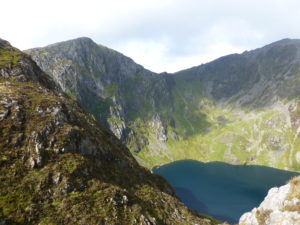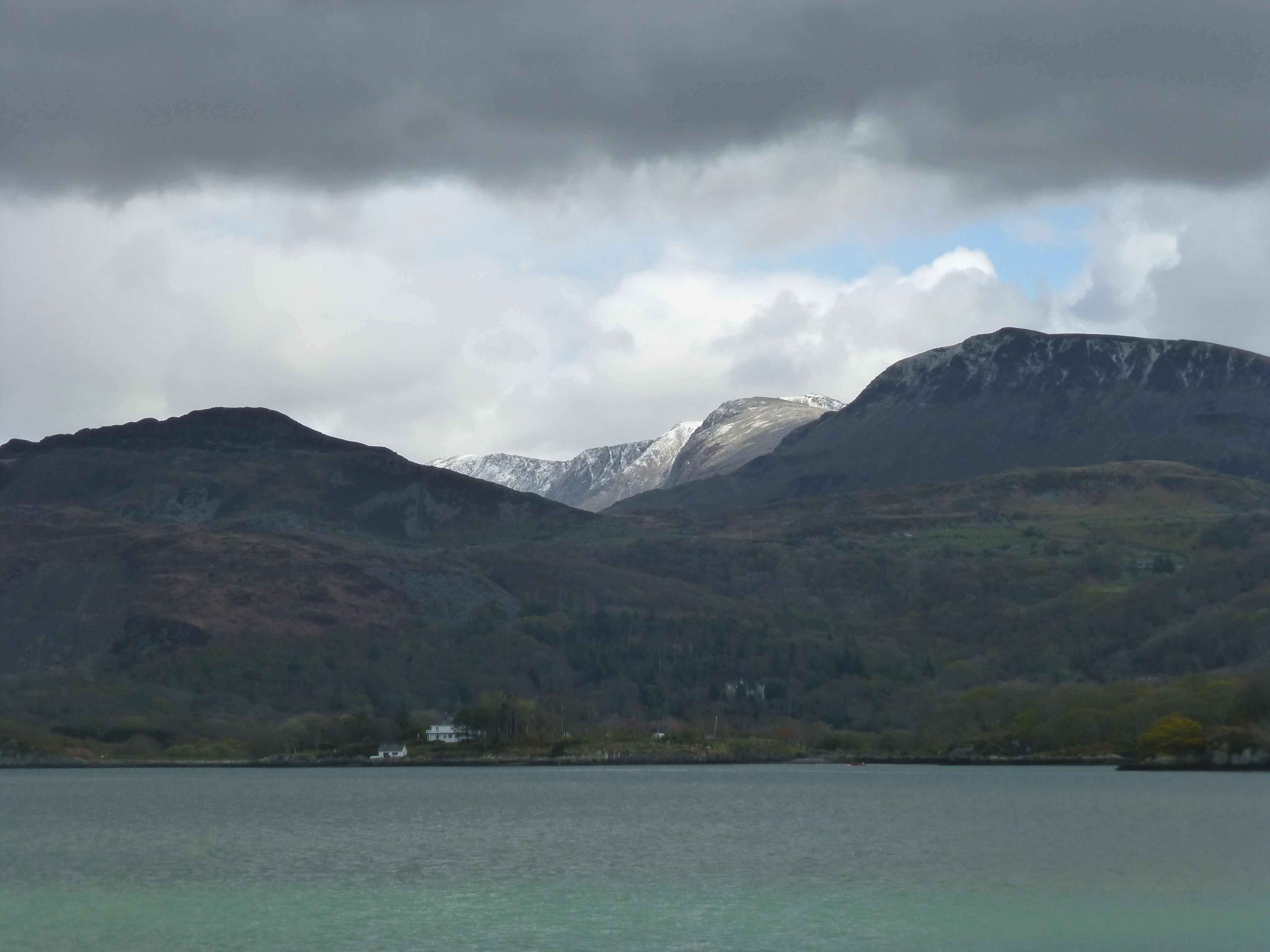 There’s an excellent collaborative research project in train at the moment, led by Bangor University, called European travellers to Wales. Its workers are busy unearthing accounts by tourists – writers and artists – from the Continent who visited Europe between 1750 and 2010. At the same time another project, Curious travellers: Thomas Pennant and the Welsh and Scottish tour 1760-1815, run from the Centre for Advanced Welsh and Celtic Studies in Aberystwyth, is also investigating historical travellers’ views of Wales.
There’s an excellent collaborative research project in train at the moment, led by Bangor University, called European travellers to Wales. Its workers are busy unearthing accounts by tourists – writers and artists – from the Continent who visited Europe between 1750 and 2010. At the same time another project, Curious travellers: Thomas Pennant and the Welsh and Scottish tour 1760-1815, run from the Centre for Advanced Welsh and Celtic Studies in Aberystwyth, is also investigating historical travellers’ views of Wales.
Wales is long used to being subjected to the attentions of superior outsiders and their ‘enormous condescension’, to borrow E.P. Thompson’s famous phrase. A superb example has just appeared in print, in a recent column in the Spectator magazine by Matthew Parris, a former MP who, like Michael Portillo, has achieved a semi-rehabilitated reputation as a broadcaster and journalist. His article is entitled ‘Wales is not an emergency – it’s worse than that’. He reaches that conclusion by way of some high-altitude musings, ill-informed enquiries and a lifetime of Tory prejudice. The piece fits perfectly into the less enlightened strand of historic travellers’ tales.
He starts quite well:
On Monday 25 July we climbed Cader [sic] Idris. No particular reason except a free Monday and a memory of what a fine mountain it looked when, many years ago and heading for the north Wales coast, I skirted this massive ridged hunk of green and black rising from oak forests [sic]. Some hills have a strong sense of their own identity and Cader Idris impresses itself on all who see it. It’s a walk, really, not a climb, but at just under 3,000 feet a big, steep walk, taking four or five hours up and down.
 He doesn’t say, but from his description of the climb he seems to have started from Minffordd and done the classic horseshoe walk via Craig Cau, Penygadair and Mynydd Moel. He notices the attempts to stabilize the paths, eroded by walkers’ boots, by helicoptering stone on to the mountain, appreciates the diversity of the woods at its foot, and once past Llyn Cau, which he calls a ‘tarn’, stops to admire the hillscapes and sea in the distance. The circuit takes him ‘between four and five hours, up and down’, not a bad time for a near-67 year old and, as he says, ‘no athlete any more’.
He doesn’t say, but from his description of the climb he seems to have started from Minffordd and done the classic horseshoe walk via Craig Cau, Penygadair and Mynydd Moel. He notices the attempts to stabilize the paths, eroded by walkers’ boots, by helicoptering stone on to the mountain, appreciates the diversity of the woods at its foot, and once past Llyn Cau, which he calls a ‘tarn’, stops to admire the hillscapes and sea in the distance. The circuit takes him ‘between four and five hours, up and down’, not a bad time for a near-67 year old and, as he says, ‘no athlete any more’.
But the rarified air seems to have addled his mind: ‘the whole day reminded me of how much I love Wales, yet how Wales always leaves me a little bit sad’.
First he bemoans the ‘fact’, based on a single anecdote, that Wales doesn’t appeal to Continental hikers (the Bangor researchers might have told him otherwise, had he bothered to find out), and links it to his own vaguely felt anxiety about Wales:
This landscape [like that of the Lake District and the Scottish Highlands] has stature too, but its character, like its rock, is dark and strangely messy, tormented: a tangled spirit … The chalky English South Downs show milky white when gashed. Wales bleeds black.
Then comes a passage that could have been lifted without alteration from the pages of a published ‘tour’ by a nineteenth century English aristocrat:
After an hour we came to a sizeable town called Blaenau Ffestiniog. This was once the centre of Britain’s slate mining, the town’s product still on roofs all over England (and Australia, where slate went out as ballast). Blaenau Ffestiniog now looks as though situated in the middle of an enormous explosion. The hills around it are shattered and strewn with slate rubble. Mysterious brick chimneys poke out of the hillsides, and broken slides, hundreds of feet long, claw down the mountain — once used to tip the slate into the valley.
This town felt like a real place, full of chapels, its bleak terraced architecture, miners’ dwellings, leached of colour like a black-and-white photograph, imparting a nice integrity of urban style — not least because little seems to have been built since.
 It would be hard to better this passage for de haut en bas condescension. Parris goes on to remark that he could pick up ‘a perfectly good small terraced house’ in the town for £35,000. You can imagine he’s used to paying a cool couple of million for any house he’d consider worth living in.
It would be hard to better this passage for de haut en bas condescension. Parris goes on to remark that he could pick up ‘a perfectly good small terraced house’ in the town for £35,000. You can imagine he’s used to paying a cool couple of million for any house he’d consider worth living in.
Then the article elides from the particular to the general. Parris leaves his strangely unsatisfying mountain walking and his glimpses through estate agents’ windows, and does ‘a bit of work on statistics’. These reveal to him that Wales is ‘much the poorest’ of the countries in ‘the Union’, and the most dependent on EU funds. The reasons are obvious enough: Wales is ‘neglected by its low-calibre Labour politicians, overlooked at Westminster and consistently out-shouted by Scotland’. What a pity that as an MP Parris had been unable to help. But it had, it seems, once crossed his mind:
When I was an MP and still dreaming of being prime minister, I resolved (patronisingly no doubt) that when the great day arrived I would try to do something for Wales. I still think we should. How about making the whole principality [sic] a tax-holiday enterprise zone, as was done for London Docklands, Liverpool and Canary Wharf? It’s not as if we raise much revenue from Wales anyway: substantially less per head than England and Scotland; less even than Northern Ireland.
There’s nothing wrong with the Welsh, Parris assures us, it’s just that their economy is shot. It’s good of him to admit his ‘patronising’ attitude, and to give his readers the benefit of his panacea for the failings of the Welsh economy. (Though I was under the impression that current government thinking, post-Brexit, is that the whole UK, not just Wales, needs to become a huge offshore tax haven).
Parris finishes his piece with what he must have thought of as a devastating clincher to his argument:
On Tuesday morning, after a good night in a pleasant little hotel in Dolwyddelan, I took the train to Llandudno Junction. How, I wondered, had they managed to keep the beautiful Conwy Valley railway open? Ah. To take the nuclear waste away from the Trawsfynydd Magnox power station (now closed) that Whitehall plonked on a beauty spot on the Welsh coast. Poor old Wales.
The idea that the Conwy valley line was only kept open for nuclear reasons is wrong (as is Parris’s curious assertion that Trawsfynydd is on the coast). But it’s convenient. It fits with his view that Wales needs to be rescued by external power; that the natives are simply too primitive or incompetent to take action of their own; that the pity of outsiders (‘poor old Wales’) is the only spur to action (or inaction). None of these opinions would have been at all out of place in the writings of English commentators on Wales two centuries ago.
 I suspect little can budge Matthew Parris from his instinctive economic prejudices, but what medicines, I wonder, could be recommended to cure him of his ignorance about Wales? A good start would be for him to read Mike Parker’s entertaining book, Neighbours from hell? English attitudes to the Welsh (2007). And then, as an antidote to his animus against Blaenau Ffestiniog, I’d suggest a book published by Gwasg Gomer in the same year, Blaenau Ffestiniog, with photographs by Jeremy Moore and poems by the late Gwyn Thomas, a man of Blaenau and of the world. I have a copy in front of me, signed by both of them for me at the book’s launch. In it is this poem, ‘Pendramwnwgl’ / ‘Topsy-turvy’, which challenges the bleak, superficial vision of Matthew Parris:
I suspect little can budge Matthew Parris from his instinctive economic prejudices, but what medicines, I wonder, could be recommended to cure him of his ignorance about Wales? A good start would be for him to read Mike Parker’s entertaining book, Neighbours from hell? English attitudes to the Welsh (2007). And then, as an antidote to his animus against Blaenau Ffestiniog, I’d suggest a book published by Gwasg Gomer in the same year, Blaenau Ffestiniog, with photographs by Jeremy Moore and poems by the late Gwyn Thomas, a man of Blaenau and of the world. I have a copy in front of me, signed by both of them for me at the book’s launch. In it is this poem, ‘Pendramwnwgl’ / ‘Topsy-turvy’, which challenges the bleak, superficial vision of Matthew Parris:
O bethau pendramwnwgl –
Niwl o liw llwydaidd,
Cerrig, a llechi, a ffenestri,
Toeau, heol, polion, tai –
Fe ddyfeisiodd dynion
Ffordd ddigon trefnus o fyw,
Hyd at fanylyn y golau gwyrdd
Sydd yn arwyddo fod yma o hyd
Ar y stryd hon gryn dipyn o fynd.Of things all topsy-turvy –
The whispy grey of mist,
Stones, slates, and windows,
Roofs, a road, poles, houses –
Men have made
An orderly way of living,
Right down to the detail of the green light
That indicates that there is here
On this street still plenty of go.
Poor Matthew! But maybe he’ll come back and see us again one day. I’d gladly offer to accompany him up Cadair, and try to put him right on a few things.

Leave a Reply